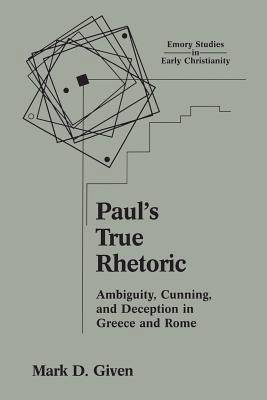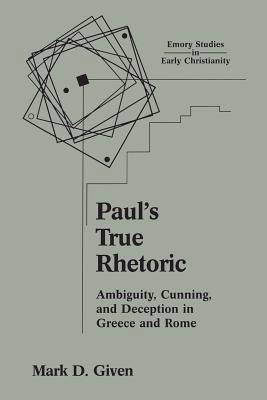
- Retrait gratuit dans votre magasin Club
- 7.000.000 titres dans notre catalogue
- Payer en toute sécurité
- Toujours un magasin près de chez vous
- Retrait gratuit dans votre magasin Club
- 7.000.000 titres dans notre catalogue
- Payer en toute sécurité
- Toujours un magasin près de chez vous
76,45 €
+ 152 points
Description
Scholars have long suspected that Paul's rhetorical strategies are not always irreproachable when judged by philosophical rhetorical standards. In Paul's True Rhetoric, Mark Given argues that Paul's rhetorical strategies in Acts and his letters display intentional ambiguity, cunning, and deception, and make him vulnerable to the charge that he perpetrates sophistries.
Paul's deliberate use of misleading rhetoric was justified by his sincere conviction that he knew the truth and had a divine mandate to promote it in an apocalyptic world filled with deception. Like Socrates, Paul regarded his enemies and potential converts as being in a state of ignorance borne of deception. Since the deception was so severe, most had no idea how ignorant of the Truth they really were. Paul felt, as did Socrates, that he had to fool the deceived by becoming like them, pretending to be ignorant. Then, using an insinuative dialectic, he could gradually expose their ignorance both to themselves and others.Spécifications
Parties prenantes
- Auteur(s) :
- Editeur:
Contenu
- Nombre de pages :
- 240
- Langue:
- Anglais
- Collection :
Caractéristiques
- EAN:
- 9781563383410
- Date de parution :
- 01-10-01
- Format:
- Livre broché
- Format numérique:
- Trade paperback (VS)
- Dimensions :
- 154 mm x 229 mm
- Poids :
- 385 g







